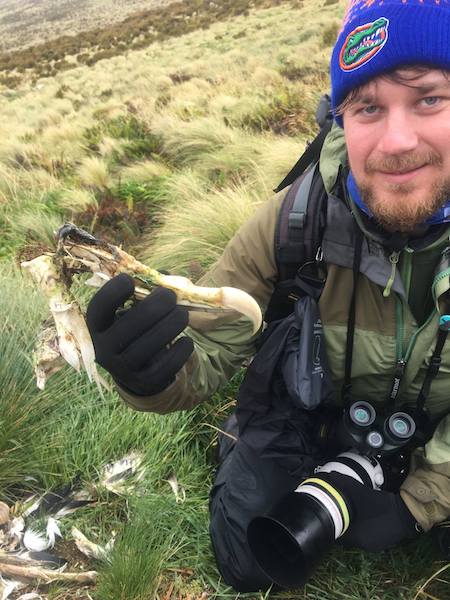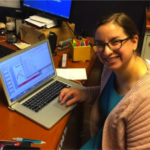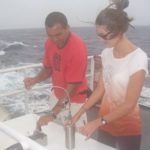Philipp Boersch-Supan
Polar Scientist in the Spotlight
Learn about all sorts of careers that polar scientists have as we explore their different research areas through the featured Polar Scientist of the Month.
Philipp Boersch-Supan
Postdoctoral Associate, University of FloridaWhat do you do?
I study marine ecosystems by combining mathematical models, statistics and field observations. Currently I focus on the energetics and foraging ecology of albatrosses and penguins.

What is the best thing about your job?
As an ecological modeler, I have the privilege to work across many natural systems and learn about many different aspects of the polar and marine environment. My research covers organisms from bacteria to albatrosses and marine mammals, and environments from the soil on seabird islands to deep-sea hydrothermal vents in the Southern Ocean.
What is the most important tool you use for research?
My work heavily depends on open source software. Open source code allows me to apply the most recent developments in statistical modelling to my work. Using open source software also ensures transparency of the methods I use, and accessibility to people that want to reproduce my work or apply similar approached to their research.
Why is what you do important?
The counting and measuring of the natural world is fundamental to the scientific method. The development of general theories, the prediction of the consequences of environmental change, or the formulation of a natural resource management plan all require a solid grounding in facts. As an ecological modeler, I work with other scientists to make the most of the often sparse observational data.




